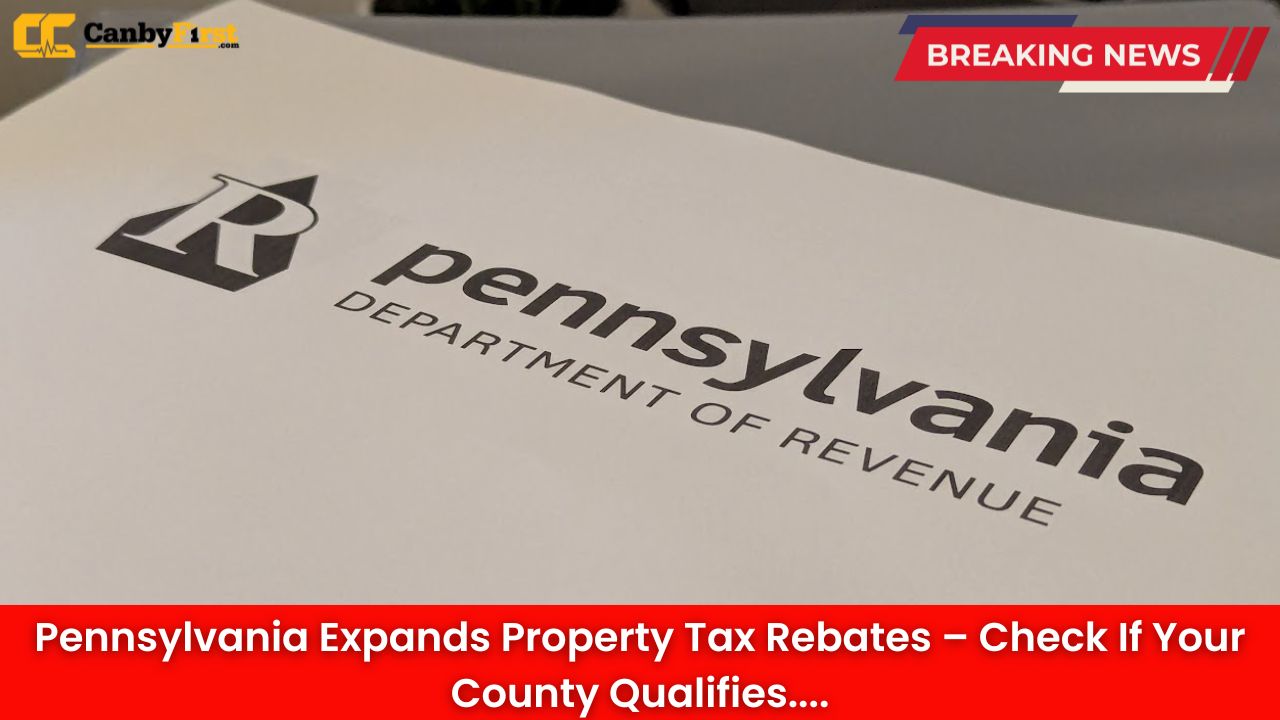Pennsylvania, US: In a major relief for homeowners and renters struggling with rising living costs, Pennsylvania has officially expanded its Property Tax and Rent Rebate Program, making thousands of additional residents eligible for much-needed financial assistance. Seniors, people with disabilities, and income-limited households can now qualify for larger tax rebates, with the expansion expected to benefit communities across nearly every county in the state.
What the Expansion Means
The Property Tax and Rent Rebate Program has long been one of Pennsylvania’s most relied upon initiatives, offering direct relief to residents facing the burden of property taxes. With the new expansion, eligibility thresholds have been raised, maximum rebate amounts have increased, and more counties are being included in targeted outreach efforts.
Previously, the program primarily supported lower-income seniors and individuals with disabilities. Now, with income limits raised and updated criteria, middle-income households are increasingly able to qualify for some level of rebate assistance. For many residents, this could mean an additional few hundred dollars back each year, softening the impact of rising property tax bills.
Also Read
Who Qualifies for Rebates?
Eligibility remains focused on Pennsylvanians who are among the most financially vulnerable, but the rules have broadened. The updated program now applies to:
-
Seniors age 65 or older
-
Widows and widowers age 50 or older
-
Adults with disabilities age 18 or older
In addition, the income limits have been revised to allow more residents to qualify, with incremental rebates based on income brackets. Rebates can now reach up to $1,000 annually, an increase from previous levels. Renters also stand to benefit, as they may receive a rebate if their rent contributes toward property taxes indirectly through landlord payments.
Impact Across Pennsylvania Counties
Each county in Pennsylvania will see varying levels of impact depending on its population demographics. Counties with large senior populations such as Allegheny, Montgomery, and Lancaster are expected to see the highest number of new applicants.
In rural counties, where property taxes often weigh heavily against fixed incomes, the expanded rebates could mean critical financial breathing room for homeowners. Particularly in northeastern and western counties, where incomes often fall below state averages, the program’s wider reach could represent a significant change in household budgets.
For renters in urban counties such as Philadelphia and Pittsburgh, the expansion ensures that more residents living in high-tax areas but not directly owning property can still access relief.
Application Process and Deadlines
The state has made efforts to simplify the rebate application process to ensure that more residents can access their benefits without facing bureaucratic hurdles. Residents can apply online or through paper applications available at local government offices.
Applicants are advised to prepare documentation including proof of income, age or disability status, and records of property taxes or rent payments. While the application period is rolling, officials encourage filing submissions early in the year to avoid delays in processing payments. Rebates are typically distributed in mid-summer, providing eligible households with relief during a time of year when utility and upkeep expenses also rise.
Why the Expansion Matters Now
The broader expansion comes amid heightened financial strain on households across Pennsylvania. With rising property taxes, higher utility costs, and inflation pressures, many retirees and low-income families have seen their budgets stretched thin. The rebate expansion acts as a cushion against these economic challenges, particularly for older adults who rely on fixed Social Security or pension incomes.
Local officials across counties have welcomed the move, noting that it keeps vulnerable residents from being displaced due to unaffordable property tax bills. For many, the rebates are the difference between staying in their homes or being forced to downsize or relocate.
Increased Statewide Outreach
Recognizing that many eligible residents do not currently participate in the program, state agencies are launching expanded outreach campaigns. County offices, senior centers, and local community organizations are working to ensure residents are aware of their eligibility and understand how to apply.
In some counties, mobile assistance centers have been set up where seniors and individuals with disabilities can sit down with staff to complete applications in person. This is particularly useful in rural counties or areas where internet access may be limited.
Looking Ahead
The program expansion will not only help individual households but also strengthen community stability statewide. By keeping seniors in their homes, Pennsylvania preserves neighborhood structure and helps counties avoid the social and financial costs associated with rising housing insecurity.
Officials stress that while this expansion is a positive step, keeping the program adequately funded and adjusted for inflation in the future will be crucial. As Pennsylvania’s population continues to age, the need for property tax and rent relief is likely to increase in the coming years.
FAQs
1. How much can I get from the rebate program?
Residents can receive up to $1,000 depending on their income level, age, disability status, and property tax or rent payments.
2. Do renters qualify for rebates too?
Yes, renters can qualify if their rent indirectly contributes toward property taxes. Eligibility depends on income and age or disability status.
3. When will payments be issued?
Most rebate payments are issued during the summer months, though applying early can help avoid delays.
4. Is the program available in every Pennsylvania county?
Yes, the expansion applies statewide, though outreach efforts may vary depending on county population and needs.
5. What documents do I need to apply?
Applicants will need proof of income, age or disability, and property tax or rent payment records to complete their submission.












